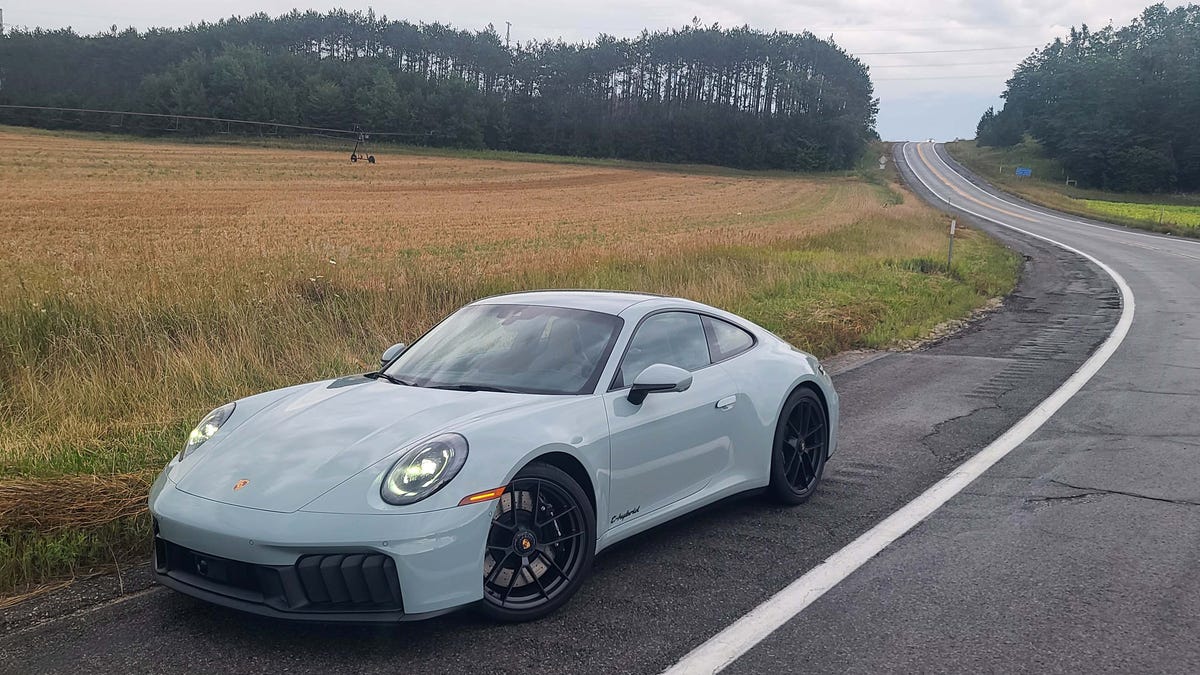Porsche’s sliding sales deepen German automotive malaise

Germany’s auto industry is sliding faster into decline, with weak demand, trade tensions and rising Chinese competition compounding the pressures on the country’s carmakers.
Porsche on Thursday joined BMW AG and Mercedes-Benz Group in reporting weaker sales in China, where local competitors led by BYD Co. and Xiaomi Corp. are winning over buyers with competitively priced electric vehicles. BMW earlier this week cut its earnings outlook after demand in the world’s biggest auto market fell short of expectations.
The China struggles add to U.S. tariff costs and stagnant sales in Europe, squeezing Germany’s carmakers across their three core markets. Despite pouring billions of euros into battery technology, their first wave of EVs failed to gain traction, with next-generation models not arriving until next year.
German Chancellor Friedrich Merz on Thursday announced €3 billion ($3.5 billion) in new EV aid and said he’ll push back hard against European Union plans to effectively ban the sale of new combustion-engine cars in 2035. But auto executives also are objecting to red tape and high energy costs in the country. They’re responding by throttling output, cutting tens of thousands of jobs and scaling back costly battery programs.
“The German manufacturing sector, and the automotive industry in particular, are in a perfect storm,” said Jens Suedekum, an economics professor and adviser to German Finance Minister Lars Klingbeil. “Market shares in China are in sharp decline, the Chinese overcapacities are hurting German exports across all markets, and unlike in 2024 the U.S. market is no longer available as a substitute.”
The slump is threatening manufacturers that for decades helped drive the success of Germany’s export-oriented economy. The country’s auto sector has lost roughly 55,000 jobs over the past two years, according to the VDA trade group. Tens of thousands of additional positions are set to disappear by 2030, in an industry that employs more than 700,000 people.
Volkswagen AG — Germany’s largest automaker that operates more than 100 factories globally — is paring back production and shedding staff. Robert Bosch GmbH, the world’s biggest auto supplier, plans to slash 18,500 jobs, most of them in Germany. Peers like Continental, Schaeffler and ZF Friedrichshafen are also cutting workers, with Ford Motor Co. reducing staff and output in Germany.
The cutbacks have sparked fears of a “Nokia moment,” a nod to the rapid decline of the once-dominant smartphone maker. The companies have complained about elevated manufacturing labor costs, which are more than twice as high in Germany as in the Czech Republic, according to Eurostat data. In the first half of 2025, combined profits at the German automakers dropped by more than a third from a year earlier, according to EY.
“The situation is serious — industrial production is falling and layoffs are increasing,” said Achim Wambach, president of the country’s ZEW economic institute. “Companies need lower energy costs, lower taxes and less bureaucracy.”
The fallout risks spreading beyond Germany’s borders. The country’s auto sector is responsible for roughly a quarter of Europe’s vehicle output and anchors a supply chain that stretches from Spain to Slovakia. Its slowdown threatens to undercut the region’s manufacturing base, weaken exports and deepen the sense that Europe is losing ground in the global race for next-generation technologies.
The German carmakers aren’t sitting idle. BMW is betting that its €10 billion Neue Klasse line of next-generation EVs can turn around sales in China, while Volkswagen has struck partnerships with local software and EV makers to return to growth in Asia’s biggest economy. The owner of the Audi and Skoda brands is doing better in Europe this year after updating its cars with new software, and is on track to sell more EVs than Tesla Inc. and Stellantis NV in the region.
Still, with production falling and investment plans on hold, business groups are warning that Germany risks losing its status as a manufacturing hub. The malaise is turning into a political liability for Merz, whose conservatives have slipped behind the far-right Alternative for Germany in some polls.
Merz has pledged to lift Germany out of stagnation with massive spending on infrastructure and defense. His coalition government on Thursday indicated it’s ready to back industry demands for more flexible EU rules on the future of gasoline cars, but hasn’t yet agreed on a specific path forward. While EVs will become the dominant technology, sticking to the 2035 cutoff for combustion-engine cars makes no sense, the chancellor said.
“If it were up to me, there would be no such abrupt change,” Merz said after meeting auto CEOs including BMW’s Oliver Zipse and Volkswagen’s Oliver Blume in Berlin.
The coalition did agree on €3 billion in additional purchase incentives for zero-emissions vehicles through 2029, a program meant to help low- and middle-income households make the switch to cleaner modes of transport. Earlier this week, it announced plans to extend a tax exemption for EVs.
But there’s little evidence so far that Berlin’s moves are making a dent. After two years of contraction, the government expects an expansion of just 0.2% this year. On Wednesday, the country’s statistics office published figures showing that German industrial production fell the most since early 2022, driven by an 18.5% drop in auto manufacturing.
“This isn’t just about factories closing,” said Benjamin Krieger, secretary general of CLEPA, an industry group representing Europe’s auto suppliers. “It’s about the industry’s social fabric, its communities and Europe’s technological sovereignty.”
With assistance from Wilfried Eckl-Dorna, Craig Trudell and Iain Rogers
link






